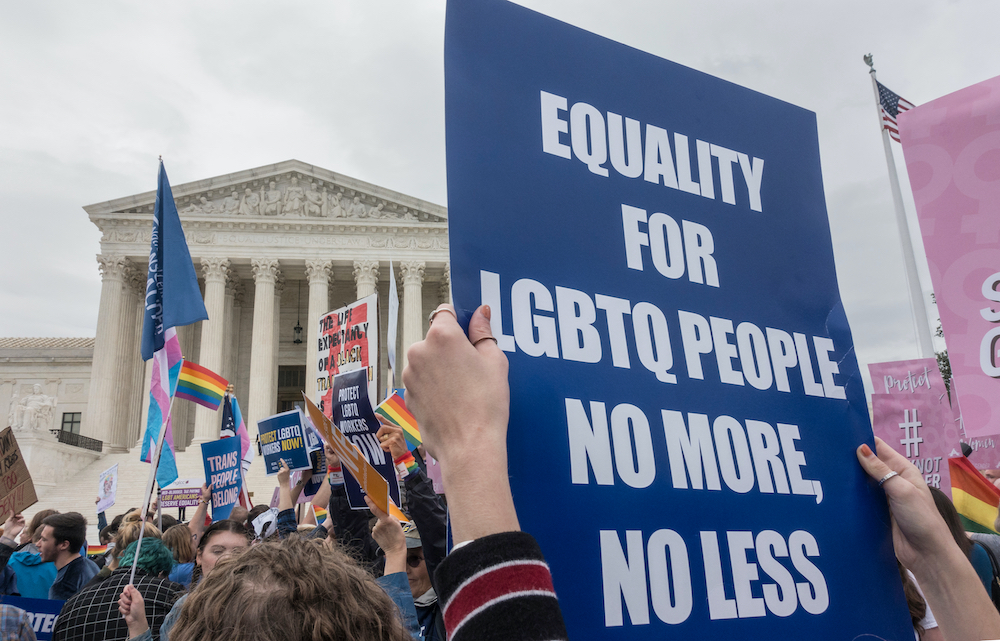The Fate of Anti-Discrimination Laws Lies With the Supreme Court

During the October 2020 term, the Supreme Court is set to take up some extremely important cases, including Fulton v. City of Philadelphia. In Fulton, which the Court will hear on November 4, the Court will consider whether Catholic Social Services (CSS), a private agency that used to contract with Philadelphia to assist in certifying prospective foster parents, is required to abide by Philadelphia’s anti-discrimination policy when it carries out that work. While this case is certainly important to Philadelphia, same-sex couples hoping to foster children there, and the children who could benefit from being placed with those couples, it’s important for another reason as well: the consequences of the Court’s decision could extend well beyond Philadelphia and its foster care program. If the Court sides with CSS and holds that the Constitution requires that CSS be given a religious exemption, the impact on other anti-discrimination laws, especially those that apply to the LGBTQ community, could be significant and deeply troubling.
The City of Philadelphia operates a foster care program that contracts with private agencies, including CSS, to recruit, screen, and certify prospective foster parents. CSS receives millions of dollars in taxpayer funds to perform this public function, but in order to do so, CSS must abide by Philadelphia’s non-discrimination policy, which requires that agencies give reasonable consideration to every prospective foster parent, including parents who happen to be in same-sex relationships. When CSS told Philadelphia that it would not license same-sex couples to be foster parents due to its religious beliefs, the city said it would not renew its contract with CSS unless CSS changed its practice. In May 2018, CSS and four of its foster parents sued the city, claiming that, among other things, the Free Exercise Clause of the First Amendment entitles CSS to a foster contract with the city while continuing to discriminate against same-sex couples.
After the city of Philadelphia won in the district court and the Third Circuit, the Supreme Court agreed to hear the case, raising the prospect the Court would overrule precedent in Employment Division v. Smith that holds that free exercise principles do not entitle individuals to a religious exemption from generally applicable, neutral state laws. Here at the Constitutional Accountability Center (CAC), we filed an amici curiae brief on behalf of First Amendment scholars in support of the city of Philadelphia. Our brief makes several points. First, Founding-era history does not support CSS’s claim that the Free Exercise Clause enables individuals to violate neutral and generally applicable laws. In fact, a number of Founding-era state constitutions included provisions protecting the free exercise of religion, while also making clear that individuals were not entitled to violate the peace, safety, or civil rights of others. Moreover, debates during the First Congress demonstrate that while some legislators believed that accommodations for religious adherents might be good policy, the First Congress did not believe that the Free Exercise Clause required such accommodations.
Second, although CSS is asking the Supreme Court to overrule its decision in Employment Division v. Smith, CSS’s argument fails even under cases that existed prior to Smith. As we demonstrate in our brief, before Smith, the Supreme Court had repeatedly held that anti-discrimination laws satisfy strict scrutiny because eradicating discrimination is a compelling governmental interest, and there is no less restrictive way to achieve this goal than to prohibit discrimination across the board. Moreover, pre-Smith Supreme Court precedent also makes clear that the government has substantial latitude to conduct its internal affairs as it sees fit. Free exercise concerns are weakest when the government is acting as a service provider seeking to ensure the provision of services to the entire populace on an equal basis.
Thus, regardless of whether Smith was correctly decided, CSS does not have a First Amendment right to obtain an exemption from Philadelphia’s policy prohibiting discrimination against same-sex couples in its own foster program. Philadelphia has significant latitude to conduct its foster care program so that it equally serves all of the city’s residents, as the Fourteenth Amendment itself requires. And even if there were some limitations on what rules the government could impose on entities carrying out its own neutral and generally applicable programs, the government can surely impose a nondiscrimination provision, given the government’s compelling interest in eradicating discrimination.
What the Court decides in this case will have significant implications not only for same-sex couples hoping to foster children in Philadelphia, but for the LGBTQ community more broadly. As Lambda Legal points out in its amici curiae brief on behalf of organizations supporting LGBTQ youth, LGBTQ youth are already disproportionately represented in the foster care system, and refusing to contract with same-sex couples would send them yet another signal that they are inferior to other kids, thus negatively affecting their mental health and well-being. Moreover, a broad ruling for CSS could have detrimental effects on anti-discrimination laws across the board, giving any entity that offers services to the public the right to evade antidiscrimination laws by claiming a religious exemption. The ultimate result could be that LGBTQ people and other political minorities are denied important civil rights protections to which the law entitles them.
That’s why this case will surely be one of the most important cases the Supreme Court is hearing next term. CAC has a long history of fighting for LGBTQ rights, and we’re proud to be continuing that fight with this filing in Fulton.
